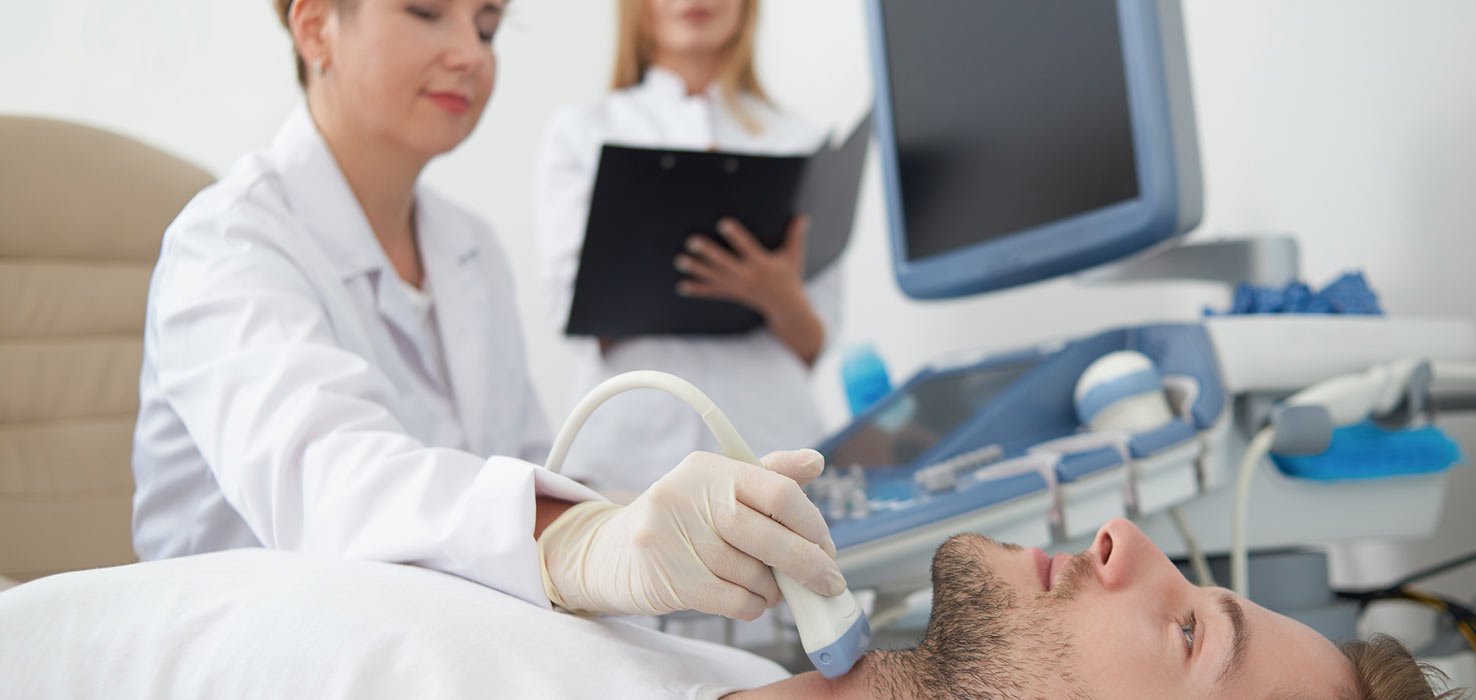
Can an Ultrasound Detect Cancer?
A special type of imaging test, an ultrasound produces information that can be helpful for diagnosing cancer, particularly in soft tissues. Oftentimes, it is used as the first step in the standard cancer diagnostic process.
Ultrasound offers many benefits; for instance, a test can be performed relatively quickly and cost effectively without exposing the patient to radiation. However, ultrasound does not produce images with the same level of clarity or detail as a CT or MRI scan, nor can it confirm a cancer diagnosis on its own.
Traditional ultrasound testing
During a traditional ultrasound test, a medical professional slowly glides a specialized device (transducer) over the patient’s skin in the area of the body being studied. The transducer produces a series of high-frequency sound waves that "bounce off" the patient’s internal organs. The resulting echoes return to the ultrasound machine, which then converts the sound waves into two-dimensional images (sonograms) that can be viewed in real time on a monitor.
Endoscopic ultrasound testing
An ultrasound test can also be performed endoscopically. During this minimally invasive imaging procedure, a medical professional inserts an endoscope (a long, flexible, lighted tube with an attached transducer) into the patient’s mouth or rectum, rather than passing the transducer over his or her skin.
How ultrasound can contribute to a cancer diagnosis
The shape and intensity of ultrasound echoes can vary depending on the density of the tissue being evaluated. Because sound waves echo differently from fluid-filled cysts and solid masses, an ultrasound can reveal tumors that may be cancerous. However, further testing will be necessary before a cancer diagnosis can be confirmed.
At Moffitt Cancer Center, our ultrasound services are provided by certified and experienced technicians, and the results are analyzed by a team of board-certified radiologists. To learn more about how we use ultrasound technology to help detect cancer, request an appointment by calling 1-888-663-3488 or completing a new patient registration form online. We do not require referrals.
